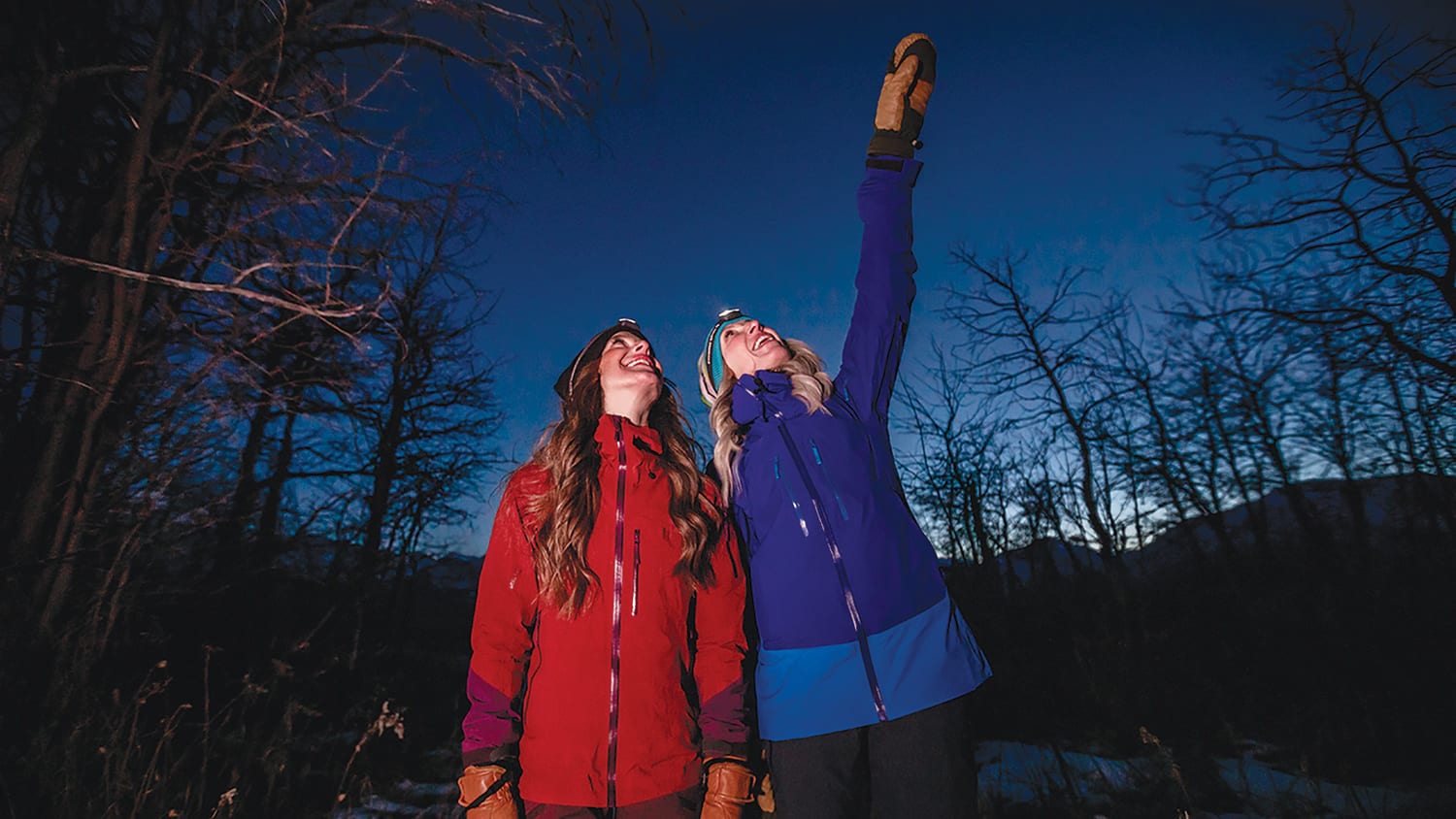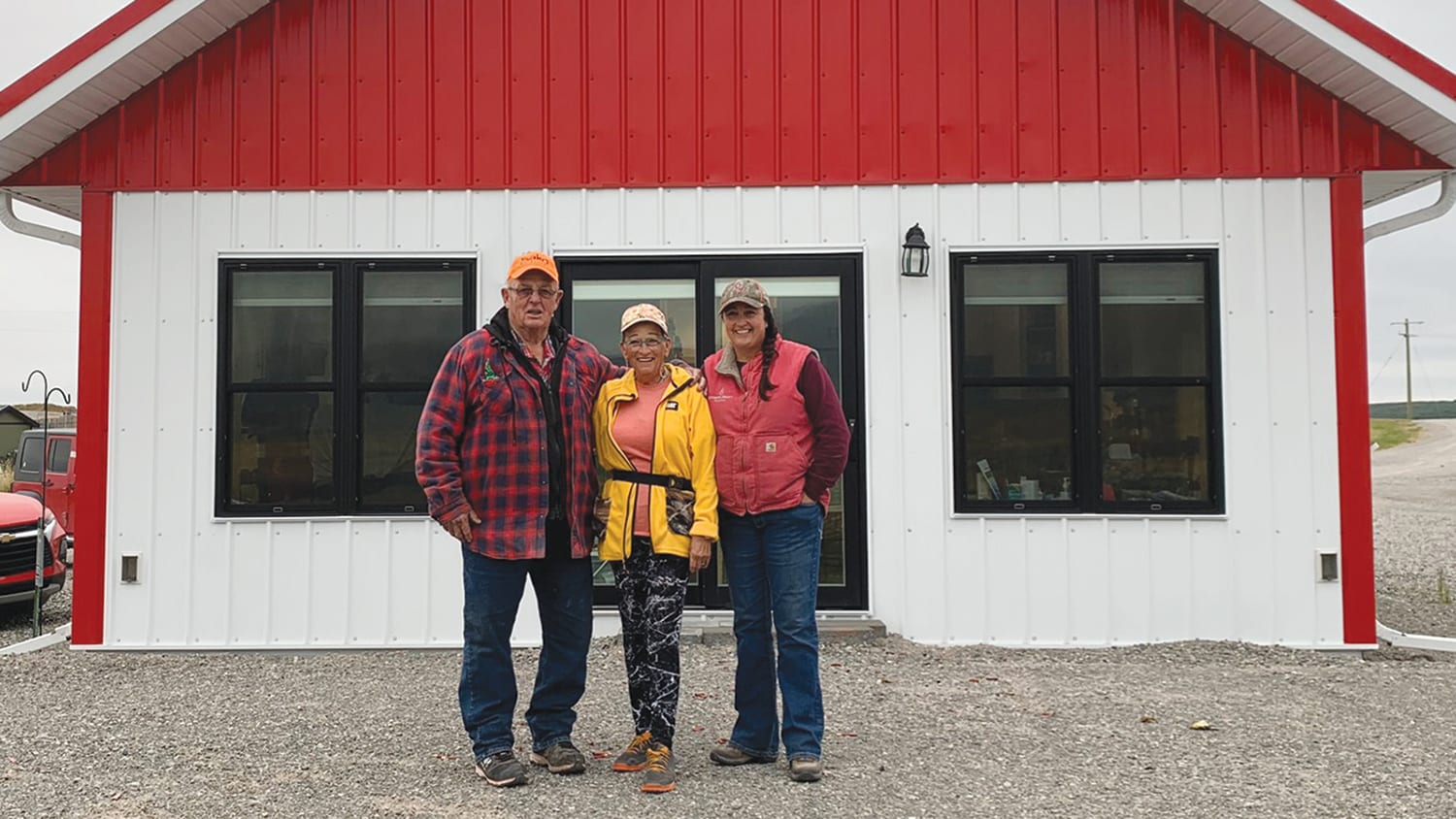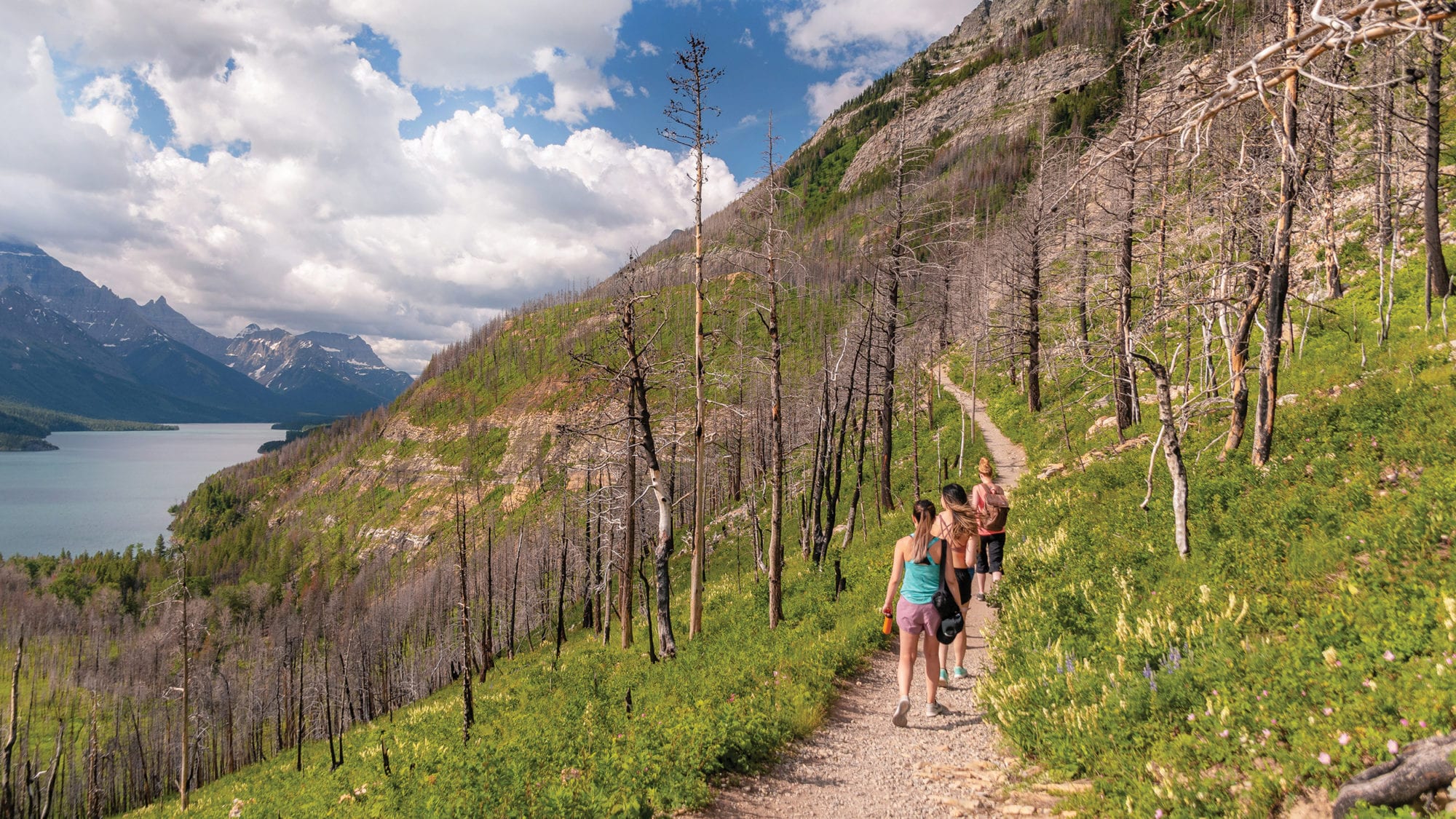It’s 11 p.m. and Keith Robinson is leading visitors on a Dark Sky Guides tour in Waterton Lakes National Park. As the group hikes to Blakiston Falls to stargaze, thousands of lodgepole pines stand guard like skeletal sentries under the moonlight—their needles gone, their scorched bark ashy to the touch. Even in darkness, the Kenow Fire’s legacy remains tangible.
In September 2017, wildfire roared through southwestern Alberta, burning more than 19,000 hectares—almost 40 percent—of the national park. Tourists and residents evacuated while 148 firefighters tried to stave off the largest fire in Waterton’s 126-year history. Ignited by a lightning strike, the flames came as close as 45 metres from the Prince of Wales Hotel.
While the inn and surrounding town were saved, losses were still significant, including the park’s visitor centre, Alpine Stables and Crandell Mountain campground. Much of Waterton’s trail network was affected, too, with bridges, signs, picnic areas and parking lots incurring damage. Outside the park, the fire consumed another 16,000 hectares, several homes and a ranch.
But Waterton has rebounded. Fireweed and other wildflowers abound. Damaged infrastructure has mostly been rebuilt, and entrepreneurs are finding new ways to attract tourists.
Robinson and his three brothers are part of the family that has run boat cruises on Upper Waterton Lake for six decades. After the fire, the brothers branched out and launched Dark Sky Guides, while remaining active with the boat company. “We wanted to give people something else to do other than daytime hiking, because for the first two years many of the trails were closed,” he says. “We’re now working on opening a planetarium.”

Resiliency runs deep among Waterton’s families. Razia Suleman, twice a refugee (from India and then Uganda), bought the Bayshore Inn Resort & Spa in 1991—though she had no experience in the hotel industry. Her son Shameer now runs it, along with several restaurants and Waterton Glacier Suites, one of the town’s few year-round lodgings. “There’s something magical and soothing about Waterton,” he says. “Everyone knows one another—we’re all family.”
Only about 40 people live in town full-time (in summer, the population balloons to around 100), so family businesses are its lifeblood. Last year, some local businesses experienced a 40 percent decline in revenues due to COVID-19, which saw Waterton Lakes and other national parks closed from March to June. A few stores and restaurants opted to remain closed until 2021. Still, the tourism numbers were encouraging: More visitors travelled to the park in July 2020 than in July 2019, according to Travel Alberta.
MORE TO READ
How to spend an epic long weekend in Waterton
Brothers Tyler and Jordan Wammes own the town’s 93-year-old gas station/corner store, Pat’s Waterton. Not only are they AMA members, they’re also AMA service providers, offering roadside assistance to motorists. Pat’s Waterton also offers paddleboard and kayak rentals, and added e-bikes to its repertoire after the fire.
“It was slow the first few years, but it feels like we’re back to where we used to be,” Jordan says. “It’s great to see all the wildflowers and everyone coming back. It’s all about regrowth and regeneration.”

AMA member Melody Garner-Skiba and her family own a ranch northeast of the park. They lost their home, barn, arena and corrals in the fire. Her parents escaped with minutes to spare. Miraculously, their 100 horses survived.
Community was key to helping rebuild their Rocking Heart Ranch. Nearby ranchers and farmers raised about $30,000 so Garner-Skiba could buy hay. A Waterton hotel donated a room for her father, a quadruple-bypass survivor, to stay in.
Her parents moved into their new home at the start of 2020. Garner-Skiba plans to expand the family business by building a barn with living quarters—to enable her to offer equestrian experiences to tourists. “Out of catastrophe, one of the silver linings for us has been the ability to pivot,” she says. “When you’re left with nothing, you have a blank canvas. I can’t imagine ever leaving this land.”
